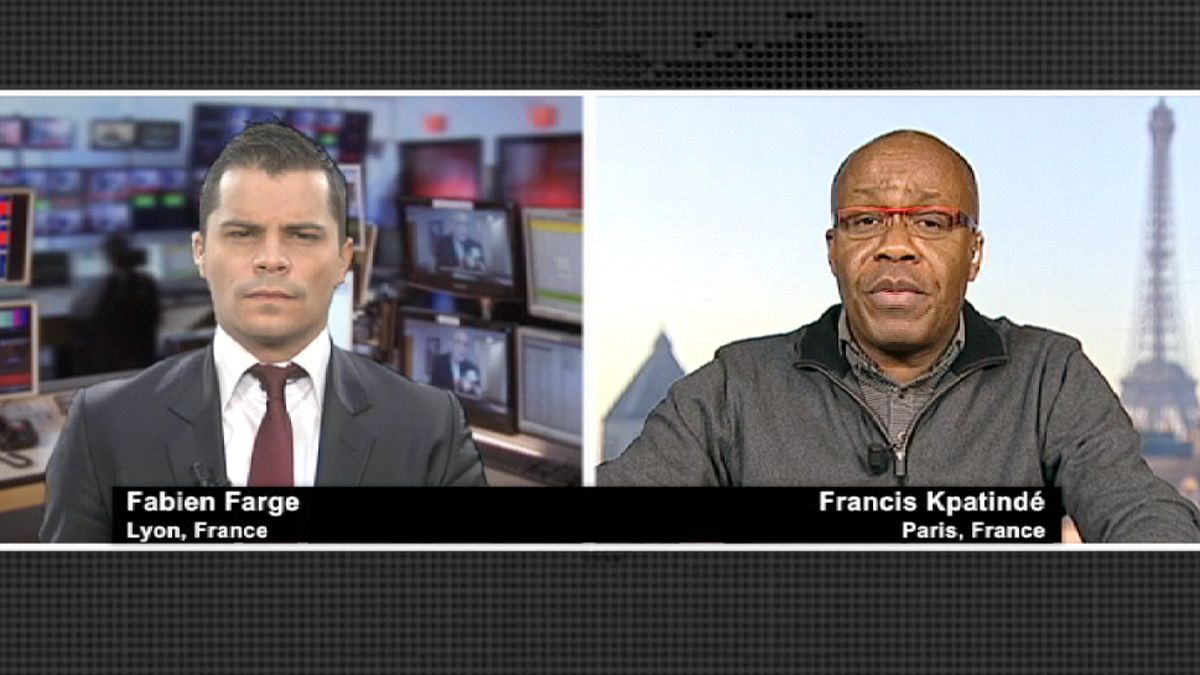French military action – Opération Serval – against Islamists trying to take control of northern Mali has moved into a new phase: the deployment of troops.
While air raids have not stopped, now 800 French soldiers are on Malian soil. President François Hollande said in Paris that this number will soon rise to 2,500.
“Our mission is not over. Remember, it is to prepare for sending in an African intervention force, to allow Mali to recover its territorial integrity, in line with the resolutions of the UN Security Council.”
Paris wants to hand over command of the mission as soon as possible to a force promised by The Economic Community Of West African States (ECOWAS). That force is supposed to receive European Union training, which is expected to take some time. This was agreed in November in Bamako.
Kadré Désiré Ouédraogo, the President of the ECOWAS Commission said that community must “more than ever mobilise for Mali and be ready to help defend its territorial integrity, dismantle terrorist and criminal networks, and to totally re-establish the authority of the state.”
The networks referred to are those of the Islamist combatants, who, according to American estimates, number between 800 and 1,200, and, according to ECOWAS estimates double that, split into three groups: the Timbuktu-based al Qaeda in the Islamic Maghreb, Kidal-based Ansar Dine and MUJWA in Gao.
Their offensive, launched last week, which triggered the French decision to intervene with air power, suggested these three groups will work together against the French-initiated intervention.
They are thought to be extensively linked.
Ansar Dine was founded by Malian Tuareg leader Iyad Ag Ghali, who became more radical after spending time in Saudi Arabia and distanced himself from his former allies in the north Malian separatist Movement for the Liberation of Azawad.
Michel Douti, an expert based in Senegal, said the three groups are different in little more than their names.
“Who can find the difference between AQIM and MUJWA? When they all agree Islamic sharia law must be imposed? Is it a question of skin colour? Because it’s plain to see that the MUJWA are mostly from West African countries, especially Nigeria, Benin and Togo.”
This expert, among others voicing concern over an emergence of a so-called ‘black jihad’, said the difference between al Qaeda in the Maghreb and MUJWA is like comparing Coke and Pepsi.
Francis Kpatindé is a journalist, and an expert on African affairs. He’s been talking to Fabien Farge from euronews.
Fabien Farge euronews: “This war is first of all a war in which there is a forced silence from the media. It is almost impossible to see pictures of it. Why such censorship?”
Francis Kpatindé: “Let’s say that the official strategy is to not to give pictures to the enemy. These Islamists, these Jihadists who are occupying north of Mali are using some of the civil population as shields and so I think the goal is to avoid scaring the Mali population, worrying them, and also to show that someone is here to help them but again avoid showing them images of collateral damage.”
euronews: “What do you think the French strategy is then? And what could be the African Force strategy, how long will this war last?”
Francis Kpatindé: “This is a war that will last several years and I’m being very optimistic here. The Islamists who are occupying the north of Mali and also the west know the ground very well. This is their advantage, the fact they are from the region and have been living there for many years. They know the smallest rock, the smallest cavern in that region.”
euronews: “Among the different threats that exist, there is one of probable Islamist retaliation on various countries like Nigeria, Algeria, Niger, even Senegal for example.
Francis Kpatindé: “Absolutely, and I can tell you that the Intelligence services, the army and the security forces of Senegal are on maximum alert. But Senegal is not the only country which is exposed right now. Niger is a neighbour of Mali. There is Algeria, I think it is the country which knows Jihadists best, especially AQIM. But the most fragile countries in the region are Senegal, Niger, maybe Guinea and then, Ivory Coast.”
euronews: “On Thursday in Paris there will be a conference about the humanitarian situation and human rights in Mali, hosted by the Foreign Affairs Ministry. What is your view of the conference?”
Francis Kpatindé: “That’s important, it proves that we are already in a post-war reflection. And this is a pretty good signal because as the French Defence Minister said, you do war to destroy an enemy, but you have to think of the civil population and their return after the war. Put the structures back into operation.
‘For months, these Jihadists have been cutting off arms, molesting women for adultery, banning people from smoking or going to the movies or playing football. This is unacceptable. The North of Mali has to get its serenity back. It is a country where people love life, where people love to have fun. They are poor but they are good people. Their Islam is tolerant. Mali needs the serenity of its charms back.”


